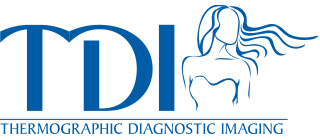Breaking the silence, offering solutions and ending the stigma of Substance Abuse Disorder; an impassioned plea.
This is a difficult subject for me to write about because, like so many other people, I have loved ones that are critically ill; they suffer from Substance Abuse Disorder. I have seen and felt the pain and devastation of substance abuse firsthand, and, like my loved ones, I became sick and I too needed help.
Having family members with substance abuse issues are, in a word, “devastating”. In an attempt to understand and help my loved ones, I started doing research. I read as much as I could about the disease of addiction and researched the current treatment programs available, a very daunting and disheartening process. Based upon current statistical treatment outcomes, which detail a very low success rate, it seemed my loved ones were doomed to a life of misery.
When I looked into treatment programs, even holistic ones, 12-Step Programs seemed to be the cornerstone. As part of my research, I attended AA and Nar-Anon meetings and I am an active member of Al-Anon and attend weekly meetings. I think the 12-step fellowships are amazing; for me personally, Al-Anon was a life saver. While they can be an integral part of sobriety and aid in the recovery of those that love someone with substance abuse, I don’t think they are the whole answer; there seemed to be a large component missing. As a holistic health practitioner, I am always looking for the root cause.
Why then wasn’t the underlying cause that prompted people to self-medicate being discussed as a major component of treating those afflicted with this horrific disease?
During my research, I came across an article that stated that Bill W., co-founder of Alcoholics Anonymous, was apparently hypoglycemic and became increasingly interested in the relationship between hypoglycemia and alcohol. Different investigators have found 50 to 96% of alcoholics are hypoglycemic. In a 1998 article in The New York Times, Christopher Wren wrote that drugs or alcohol are linked to 80% of incarcerations. Additionally, it was discovered that close to 75% of those who are incarcerated are hypoglycemic. For more information on this subject, please see my December 2015 newsletter. Please view newsletter here.
In 1968, Bill W. pleaded with physicians in a 48-page booklet to adopt the hypoglycemia diet and vitamins, especially B-3, in the treatment of alcoholism. Abram Hoffer, M.D., PhD, writes, “Bill Wilson (co-founder of AA) began to take niacin (B-3) in a dose of 3,000 mg daily. Within a few weeks, fatigue and depression, which had plagued him for years, were gone. He gave it to thirty of his close friends in AA. Of the thirty , 10 were free of anxiety , tension and depression in one month. Another 10 were well in two months.”
In an article entitled, “The Irrationality of Alcoholics Anonymous,” there is a quote by Bill W. in which he states, “Alcohol dependence is an illness, not a moral failing.” The article goes on to say “Why, then, do we so rarely treat it medically?”
Please click here to view article.
(For more information about the role of hypoglycemia, mental health and addiction see: The Hypoglycemia Association, Inc. You can also look at the work of Joseph D. Campbell, PhD., John Tintera, M.D., A. Hoffer, M.D.)
I followed the thread of Dr. Hoffer’s work and found many people who expanded and expounded on the idea of treating the underlying cause, whether it be hypoglycemia or some other mental, physical or emotional issue. People are successfully implementing programs such as balancing neurotransmitters and brain chemistry, amino acid therapy and treating underlying issues such as depression, anxiety, mood disorders and gut issues like leaky gut and H-Pylori.
Dr. Charles Gant, one such practitioner, has reported an 83% success rate in ending patients’ addictions using some of the aforementioned modalities. Many practitioners are also looking at the importance of a clean, organic diet – using food as medicine. (Hippocrates said, “Let food be thy medicine and medicine be thy food.”) One of the hallmarks of these therapies is that it affords the individual being treated dignity and respect and gives them the sense of empowerment that comes from being a responsible part of the recovery process.

Click here to register for the June webinar.
When I finally discovered that there ARE individuals who are approaching this disease from a root cause/alternative perspective, I felt like I found the Holy Grail. What I don’t understand is why all of the treatment and recovery centers aren’t taking a look at this information and implementing these practices. The answer to that question and to so many questions in this day and age is the same….follow the money.
(To understand this in more detail, I refer you to a candid, informative and quite disturbing 2017 article by Christopher Caldwell called, American Carnage – The New Landscape of Opioid Addiction. Click here to read the article.)
We have an epidemic on our hands!
I feel it is our responsibility, individually and collectively, to raise awareness about this deadly disease and start to remove the stigma that keeps sufferers and their loved ones trapped in a world of isolation and pain. I pray that the powers that be make resources, programs, and services available to all those who are afflicted, their families and friends and all who are looking for recovery.

In Al-Anon we end the meeting by saying, “Keep coming back, it works when you work it so work it, you’re worth it.”…We are all worth it, and until we step into that knowing, we can not create change.
~ Liesha
For more information on this subject, please see this month’s newsletter here. Would you like to meet with Liesha at TDI and Health Through Awareness? Contact us here.


